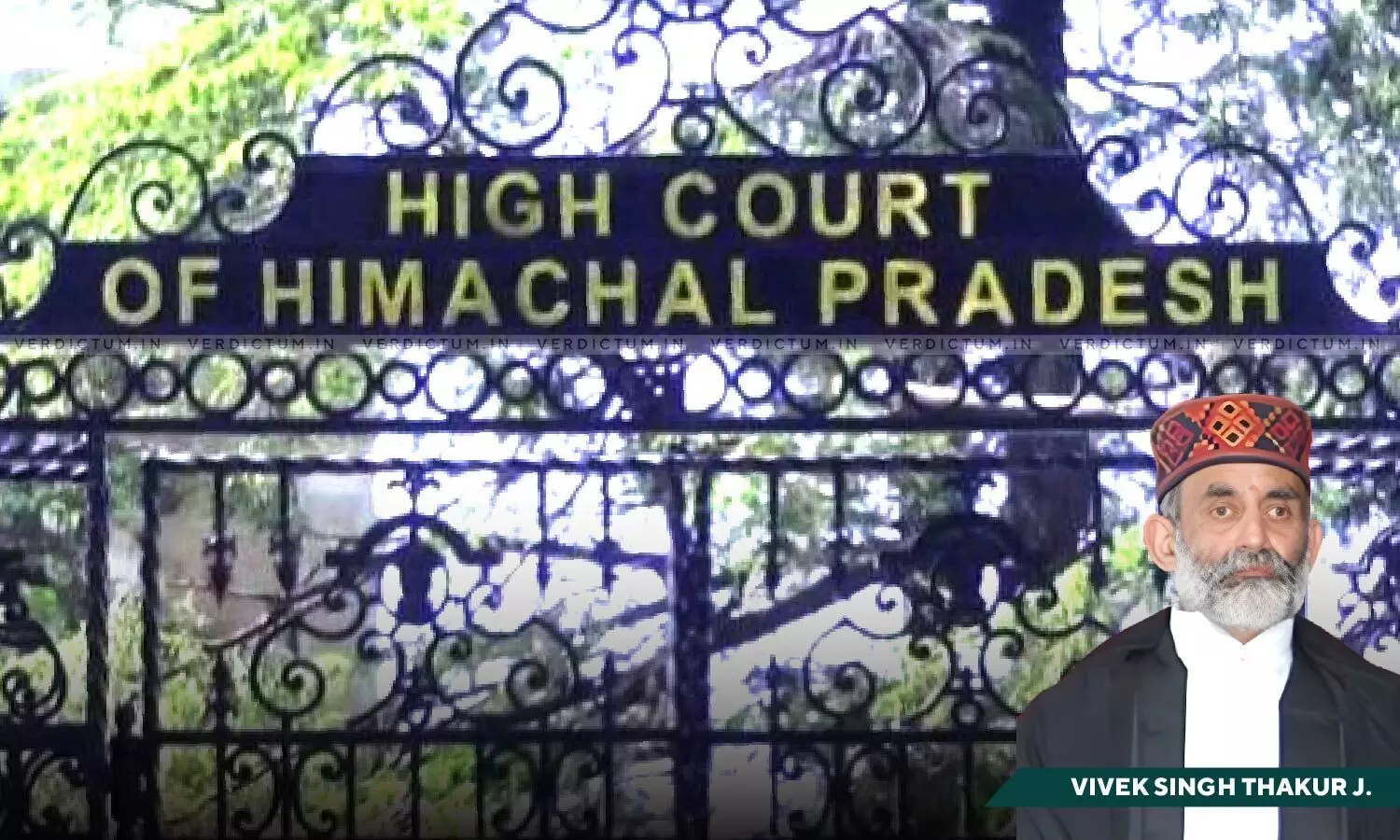
Justice Vivek Singh Thakur, Himachal Pradesh High Court
Adverse Possession Is Heritable: Himachal Pradesh High Court Allows Widow To Inherit Husband’s Encroached Land
 |
|Woman claimed ownership of government land occupied by her husband since 1963.
The Himachal Pradesh High Court has ruled in favor of a widow asserting ownership over government land on the basis of adverse possession claimed by her deceased husband. The Court held that the woman was entitled to be recorded as the owner in the revenue records, as her husband's long-standing, uninterrupted possession of the land since 1963 had matured into a legally heritable right.
A Bench of Justice Vivek Singh Thakur observed: “Entries in revenue record reflect that unauthorized possession was very much in the knowledge of State since 1963 and for completion of 30 years of adverse possession without any interruption, interference, objection despite being in knowledge of the Revenue Agency, Gurdass during his life time had right to claim title on the basis of adverse possession and after his death, his adverse possession is heritable. Thus plaintiff is entitled to inherit the encroachment with claim of adverse possession by clubbing the period of possession of her husband since 1963.”
Background
The plaintiff, a resident of Bilaspur district, filed a civil suit claiming that her husband had entered into possession of a parcel of government land on January 13, 1963. This was evidenced by entries in the jamabandi (revenue record) for the year 1963–64. She contended that her husband had maintained open, peaceful, and continuous possession of the land for more than three decades, a period sufficient to establish title under the doctrine of adverse possession.
Due to their illiteracy, neither the plaintiff nor her husband ever applied to have the revenue records updated to reflect their claim. The issue came to light in 2009, when the plaintiff visited the revenue office to obtain documents needed for a loan application. Thereafter, attempts were made by the revenue authorities to evict her, prompting her to file a suit seeking a declaration of ownership and a direction to update the revenue entries in her name.
The Trial Court ruled in her favor, recognizing her right to the land and restraining the State from interfering with her possession. The State appealed to the District Court, which upheld the Trial Court’s findings. Subsequently, the State filed a second appeal before the High Court.
Findings
The High Court emphasized that the State had acknowledged, both in pleadings and via documentary evidence, that the plaintiff and her husband had continuously possessed the land for over 30 years. Despite this knowledge, the State had taken no legal action to evict them or reclaim the property.
The Court held that the claim of adverse possession by the husband was valid and had ripened into ownership due to the uninterrupted, hostile possession of the government land. Furthermore, he clarified that this right is heritable, and thus, the plaintiff could lawfully inherit the land.
The State also raised a legal objection based on Section 171 of the Himachal Pradesh Land Revenue Act, which bars Civil Courts from adjudicating matters relating to revenue entries. However, the Court rejected this argument, pointing out that Section 171 begins with the phrase “Except as otherwise provided by this Act,” indicating the presence of statutory exceptions that allow Civil Courts to exercise jurisdiction in certain situations.
The High Court dismissed the State’s appeal, upholding the findings of both the Trial Court and the First Appellate Court.
Cause Title: State of Himachal Pradesh v. Sukhan Devi (deceased) through LRs, [2025:HHC:21844]
Appearance:
Appellant: Additional Advocate General Vishav Deep Sharma
Respondent: Advocates Vishali Lakhanpal, Parv Sharma